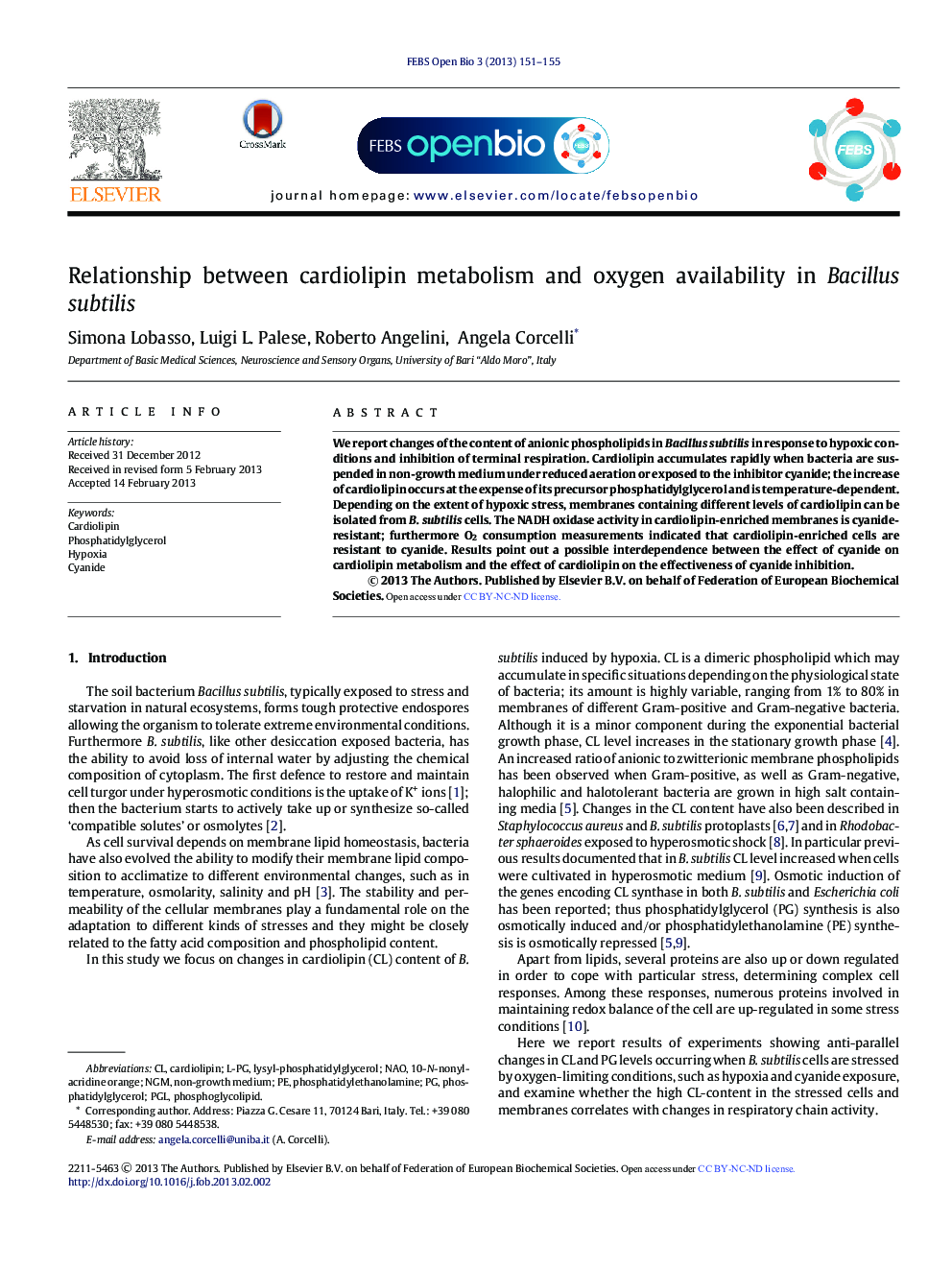| Article ID | Journal | Published Year | Pages | File Type |
|---|---|---|---|---|
| 1981777 | FEBS Open Bio | 2013 | 5 Pages |
We report changes of the content of anionic phospholipids in Bacillus subtilis in response to hypoxic conditions and inhibition of terminal respiration. Cardiolipin accumulates rapidly when bacteria are suspended in non-growth medium under reduced aeration or exposed to the inhibitor cyanide; the increase of cardiolipin occurs at the expense of its precursor phosphatidylglycerol and is temperature-dependent. Depending on the extent of hypoxic stress, membranes containing different levels of cardiolipin can be isolated from B. subtilis cells. The NADH oxidase activity in cardiolipin-enriched membranes is cyanide-resistant; furthermore O2 consumption measurements indicated that cardiolipin-enriched cells are resistant to cyanide. Results point out a possible interdependence between the effect of cyanide on cardiolipin metabolism and the effect of cardiolipin on the effectiveness of cyanide inhibition.
▸ Bacillus subtilis lipids were analyzed by TLC and MALDI-TOF/MS. ▸ Hypoxic stress stimulates the conversion of PG in CL. ▸ Membrane CL levels correlate with the extent of hypoxic stress. ▸ The respiratory poison cyanide induces CL membrane enrichment. ▸ CL-rich cells or membranes are resistant to cyanide.
